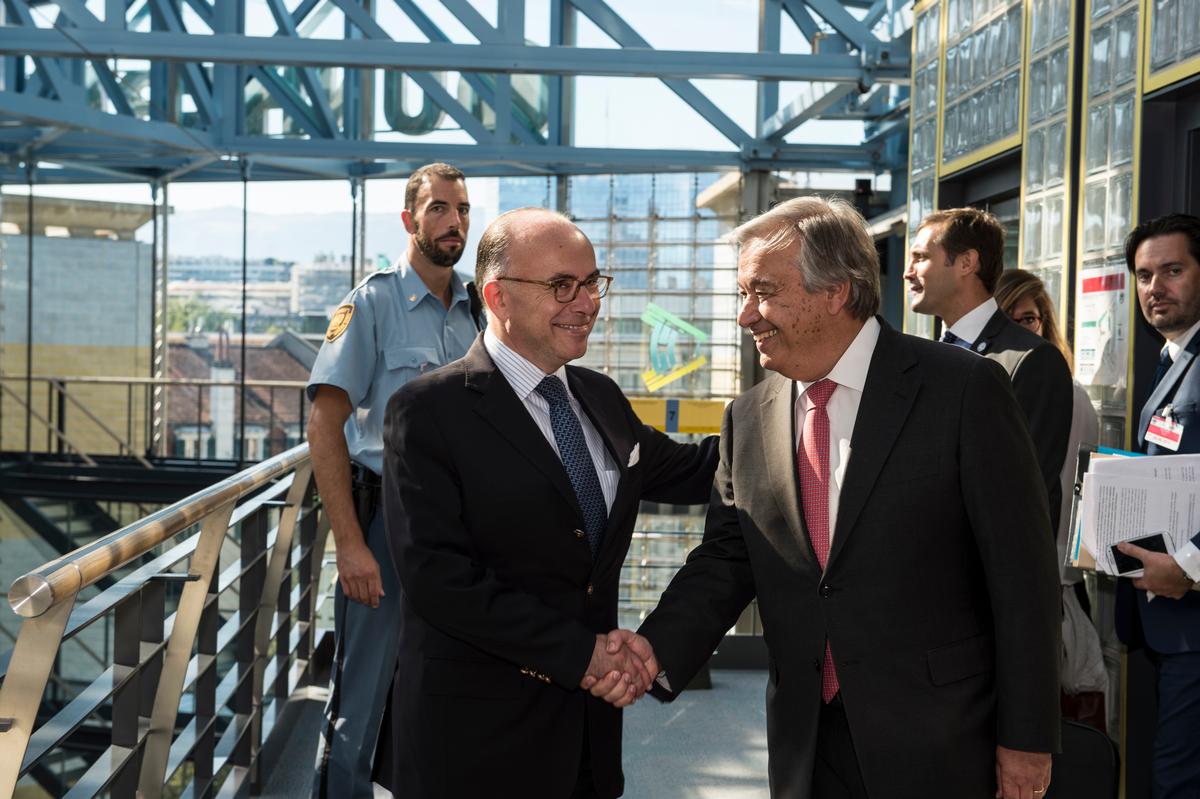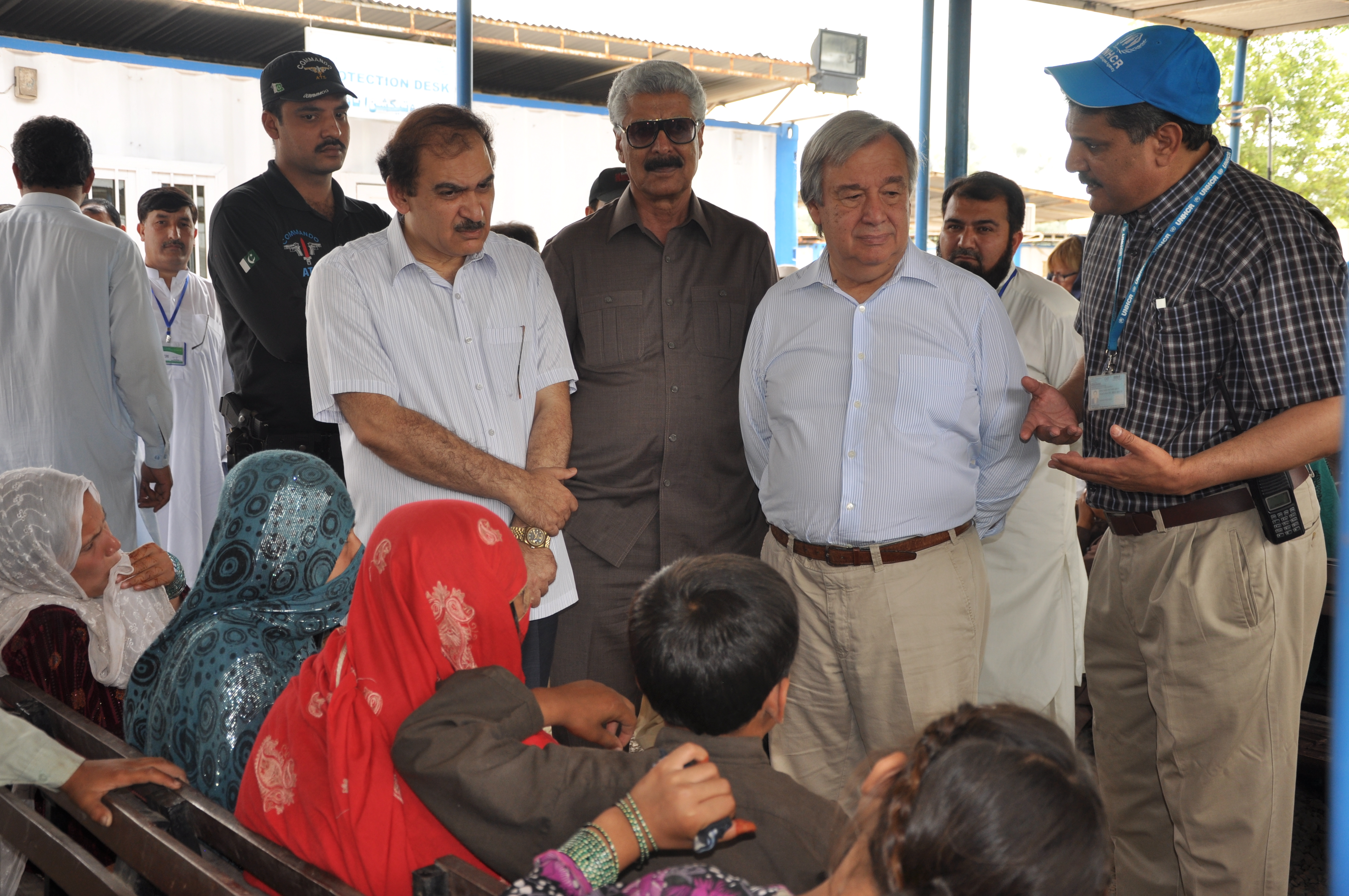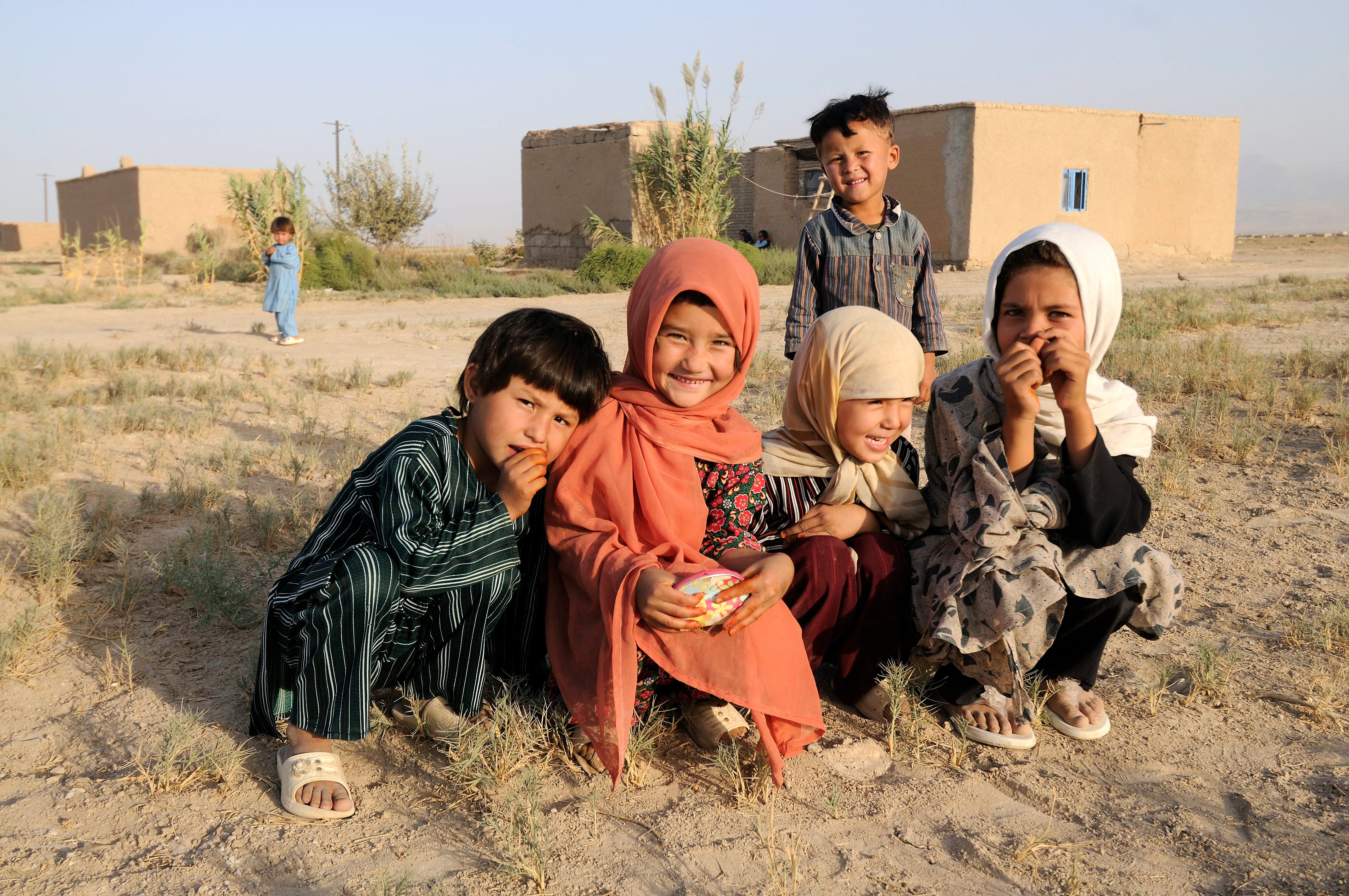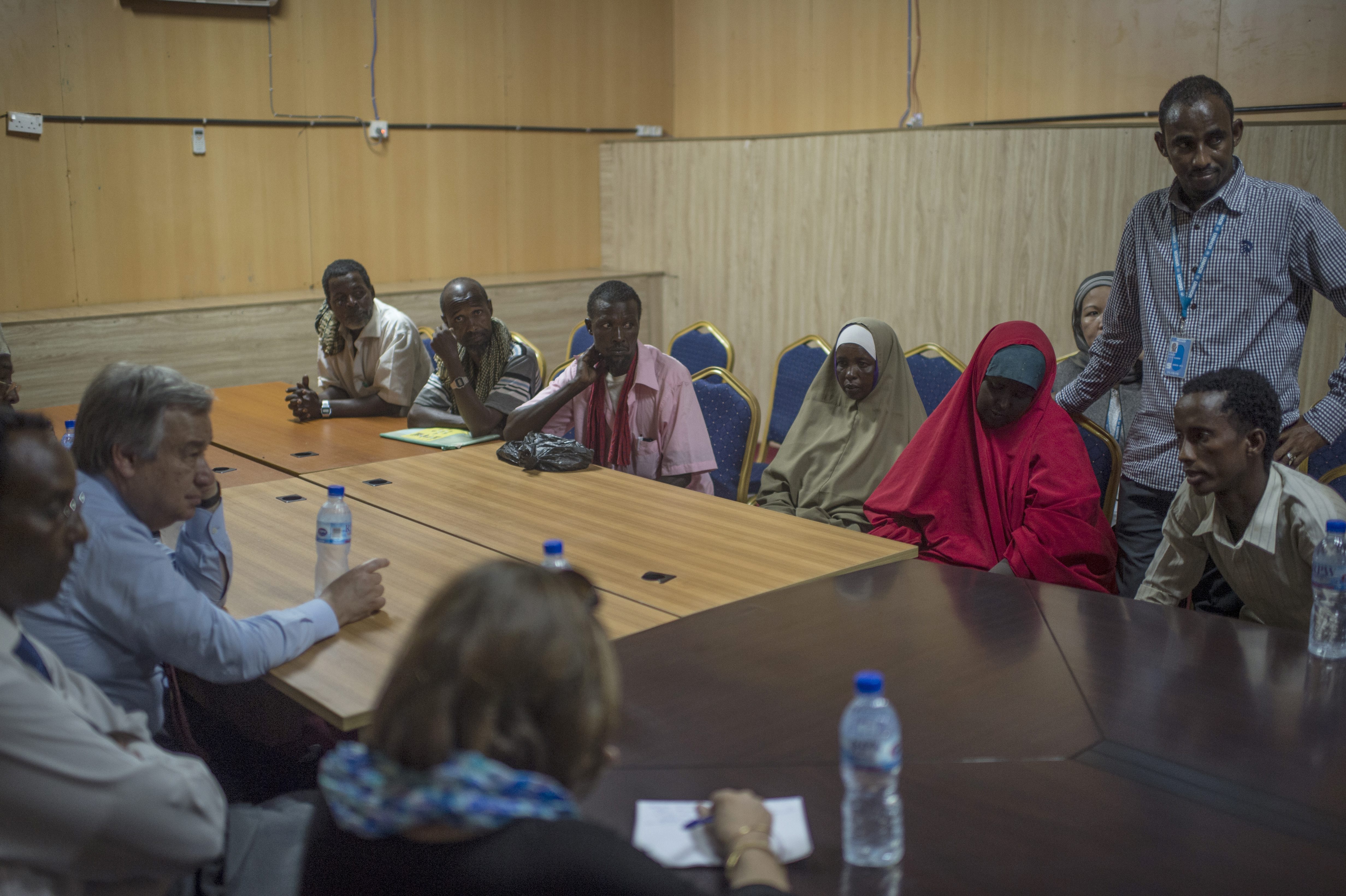High Commissioner meets Colombian president; visits displaced Afro-Colombians
High Commissioner meets Colombian president; visits displaced Afro-Colombians
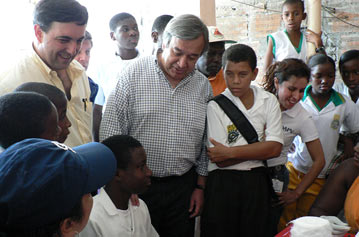
BOGOTA, Colombia, March 16 (UNHCR) - UN High Commissioner for Refugees António Guterres chaired a high-level conference on displacement here on Friday, the last day of a visit that included a meeting with President Álvaro Uribe and a visit to displaced Afro-Colombian people in the north-west of the country.
Friday's meeting, bringing together high-ranking government officials, civil society and displaced people, had two main objectives: to draw attention to the humanitarian consequences of displacement and to urge full implementation of the law so that all displaced people have equal access to their rights.
"We are here to learn with you with the greatest possible commitment to do everything possible to find concrete solutions that will guarantee the right of every displaced person," Guterres told the meeting.
Colombia has some of the most advanced legislation in the world for internally displaced people (IDPs), thanks to a national law passed 10 years ago. It covers the rights to protection by the state, documentation and access to services such as health, education and housing.
More than 3 million people have been displaced inside Colombia as a result of the decades-long armed conflict between irregular armed groups and government forces. Accounting for around 8 percent of Colombia's population, they are one of the largest populations of concern to UNHCR in the world.
Guterres, who met President Uribe on Wednesday, pledged UNHCR's continuing support for government efforts on behalf of the nation's displaced people. He stressed the importance of applying the law in a concrete way and carrying it out equally for everyone.
In the past two years, the Colombian government has considerably increased its resources to help displaced people. However, practical delivery of the law remains patchy in some areas and not all IDPs have equal access to their rights.
The High Commissioner said internal displacement presented governments with unique challenges that called for sustained and considerable efforts on the part of all involved. He pointed out that a commitment to the truth and to humanitarian principles was essential for meeting this challenge.
On Thursday, Guterres travelled to a small Afro-Colombian community in Chocó, in the north-west of Colombia. Most of the families in the community were displaced because of the volatile security situation in the area, and they were still frightened they might have to flee again. The High Commissioner told them that security and peace were their first rights, without which no other rights could be adequately enforced.
In Bebedó, he also met with indigenous people affected by the conflict. "I understand how difficult it is for you. Displacement is a tragedy and it is difficult to come back to an area that is quite poor," he told them. "We are here to support you and all together we will do everything we can so that the law that exists to protect you, becomes a reality for you," the High Commissioner added.
He also stressed during his three-day visit to the country the importance of addressing the root causes of displacement, which in Colombia are linked to the conflict between irregular armed groups and the state. He added that, while the international community was there to help, the problems of Colombia could only be solved by the Colombian people and their government.
Friday's conference coincided with the release of a UNHCR study that evaluated changes and displacement trends and the government's response in Colombia over the past three years. Guterres was to outline some of the main findings and conclusions of the study.
Before his visit to Colombia, the High Commissioner was in Ecuador on Monday and Tuesday and called for more international support for Colombian refugees in that country.
By Marie-Hélène Verney in Bogota, Colombia

